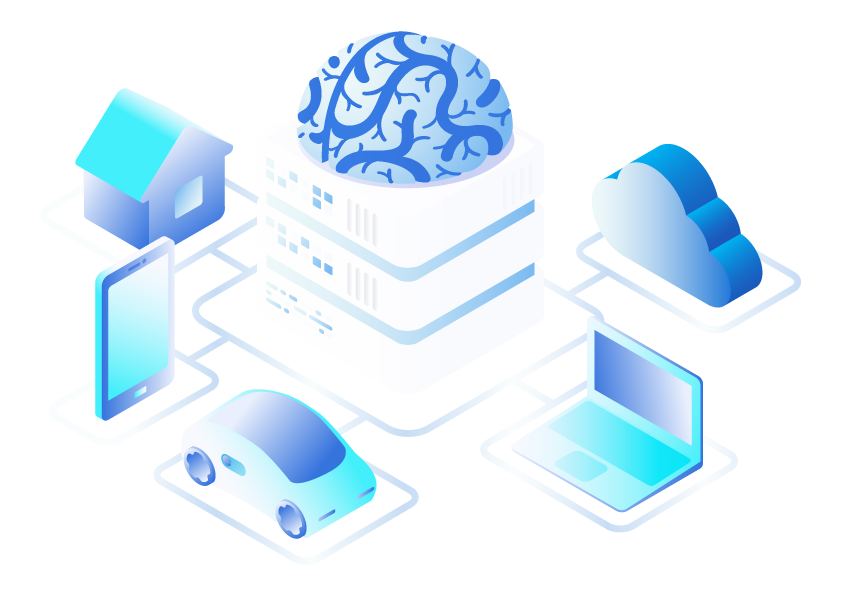
Artificial Intelligence (AI) is a broad discipline that aims to design systems which display properties of human intelligence, such as reasoning, learning, adaptation, interaction or sensory understanding. It is an inter-disciplinary approach using principles and devices in a variety of fields such as computation, mathematics, logic, mechanics, or biology to understand, model or replicate intelligence and cognitive processes.
It is extremely difficult to give a unique definition to the European Commission proposed to define it as “systems that display intelligent behaviour by analysing their environment and taking actions – with some degree of autonomy – to achieve specific goals”.
AI includes various branches, among which we classically distinguish:
- robotics (applications of AI for motion)
- vision (applications for videos or images)
- natural language processing (applications of AI for speech or written language).
Machine learning (ML) is a sub-discipline of AI where a technique is used to give the machine the ability to learn. The technique is able to identify patterns from large datasets without being explicitly programmed and without any a priori assumption. Deep learning (DL) is a specific type of ML method which allows a machine to be fed by a large quantity of raw data (big data). Neural networks are DL algorithms that are among the most commonly used for applications related to Health and Medicine.
